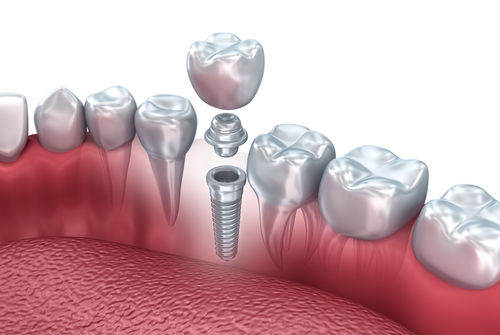Dentists in Manassas VA will do everything humanly possible to preserve your natural teeth so that they remain healthy and attractive for the rest of your life. The reality is that it is sometimes in your best interest to undergo a tooth extraction. You could require a tooth to be extracted for a number of reasons, including the following:
- Severely damaged tooth because of decay or trauma
- Impacted wisdom tooth
- Tooth crowding
- Baby tooth that doesn’t fall out when expected
Many people spend a lot of unnecessary time worrying about needing a tooth extraction. The truth is that this is a very common procedure that is normally very routine. How straightforward a given procedure is depends upon the location of the tooth and root condition. For example, a tooth with a single straight root located in the front of the mouth is not as difficult to remove as a molar with multiple roots.
An added level of complexity comes into play when an impacted wisdom tooth requires removal. These types of teeth are engulfed by bone and gum tissue. A wisdom tooth can even be prevented from erupting fully by other teeth in its path.
Even though a tooth extraction can be complicated, it is still nothing to fear. Teeth are not rigidly fixed into the surrounding bone, although that is the typical picture that people have in mind. In reality, a tooth is attached to the surrounding bone with a fiber network known as the periodontal ligament. Your dentist can detach these fibers to extract your tooth without much difficulty.
Tooth Extraction Procedure
Before undergoing a tooth extraction, x-rays will be taken so that your dentist can look at the condition of your tooth roots and surrounding bone. This is helpful in anticipating any possible complications.
You will also need to provide a complete medical history. Your anesthesia options will be discussed, and you can ask any questions or share any concerns that you have at this time.
Local anesthesia is normally administered before a tooth extraction. This will numb the area so that you are comfortable during the extraction. Sometimes, additional sedatives are employed, including nitrous oxide or oral sedatives. IV sedation is also available.
While your tooth is being extracted, your dentist will be taking steps to ensure that surrounding bone is not harmed. In some cases, a small amount of bone-grafting material is used to preserve bone volume. This is sometimes the case whenever a tooth extraction will be followed by the placement of a dental implant that requires a solid foundation of bone to anchor it.
After Your Tooth Extraction
Right after your tooth extraction, gauze will be placed over it, and gentle pressure will be used to prevent excessive bleeding. You may experience some temporary discomfort following your extraction. In most cases, taking over-the-counter pain relievers should help. You may also be prescribed antibiotics to ensure that you heal properly without infection.
Learn More
Contact Liberia Dental Care to learn more about tooth extractions. Call 703-260-1200 or book an appointment online. New patients are welcome!









